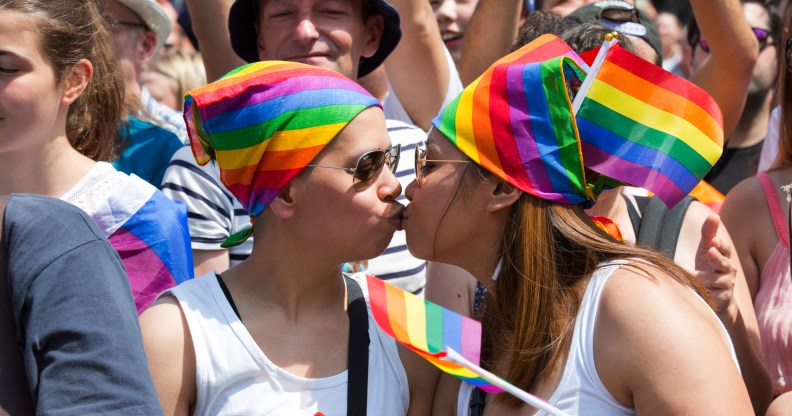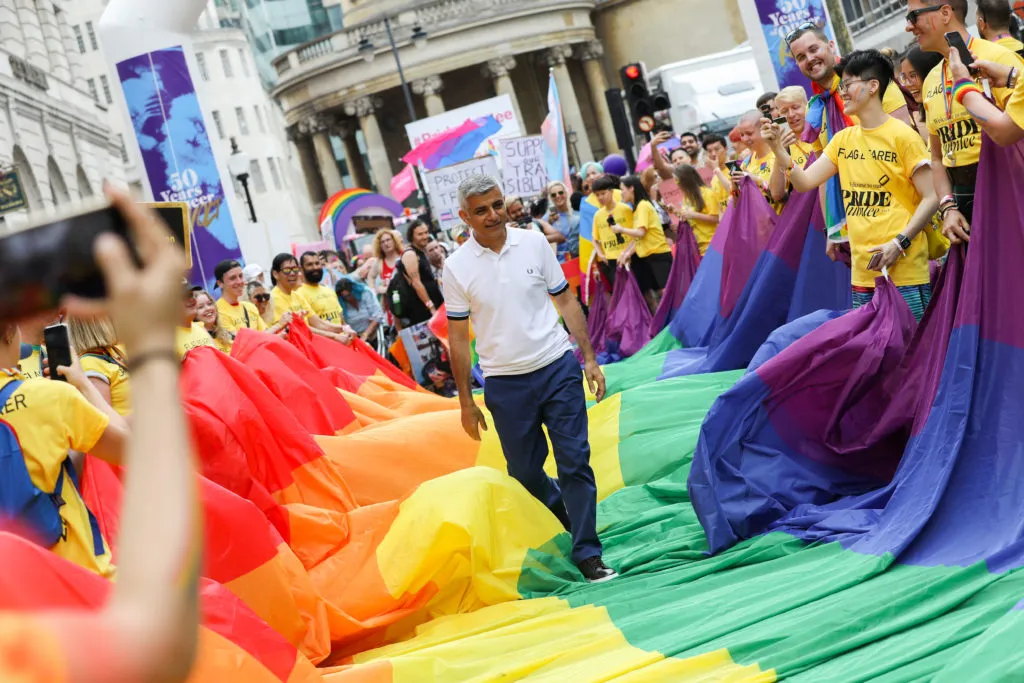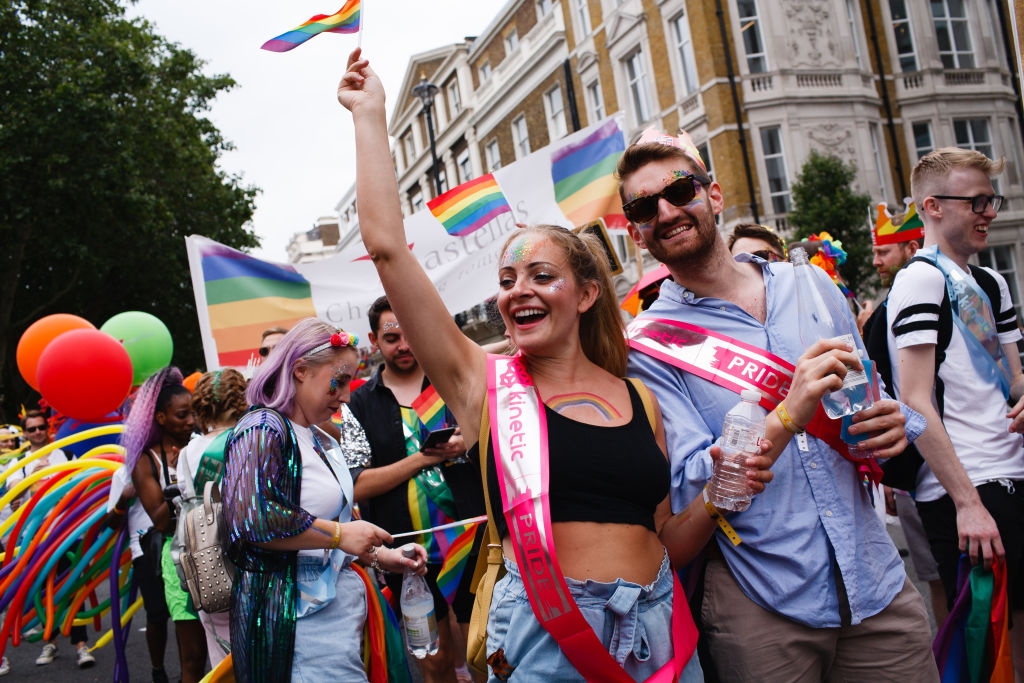Number of people identifying as lesbian, gay or bisexual is at a record high in the UK

Pride in London parade at Piccadilly Circus on the 7th July 2018 in central London in the United Kingdom. 30,000 marched through central London for the citys annual LGBT Pride celebration. (photo by Sam Mellish / In Pictures via Getty Images)
The UK has a higher proportion of lesbian, gay and bisexual people than ever before, according to new figures released by the government.
In the 2018 study by the Office for National Statistics released Friday, around one in 50 identify as LGB.
It’s an increase from the year prior that activists are calling “progress”, but they note of the elusiveness of a concrete number considering that hate crimes in Britain are rocketing and debates over inclusive education have taken national stages in recent years.
More people identify as gay, lesbian or bisexual in the UK than ever before.
The data, the latest in an annual series on LGB populations, gives a snapshot of a UK population more adamant in being their authentic selves than ever before.
Figures leapt by 100,00 in 2018, and up from 1.6 per cent of people over the age of 16 to 2,2 per cent between 2014 and 2018.
People aged between 16 and 24 are, the report says, more likely to come out than those older. But considering that around one in four adults would not feel proud to have an LGBT+ child, according to a 2019 study, it highlights how more work still needs to be done.
Overall, men are more likely to identify as queer than women, with one in 40 men doing so compared to one in 50 women.

London Mayor Sadiq Khan during the parade at Pride in London 2019. (Tristan Fewings/Getty Images for Pride in London)
London remains a hub of safety and acceptance for LGB people, the data suggests, in that people living in the capital city are more likely to identify as LGB, at 2.8 per cent.
The North East of England saw the lowest number of people, when asked by survey taskers how they identify, to say they are LGB, being at 1.8 per cent.
Moreover, around two in three LGB people have never been married or entered into a civil partnership. A trend, the Office suggested, reflects the younger age structure of LGB populations.
Stonewall leader: ‘We still don’t live in a society that is safe and equal for LGBT+ people’.
Laura Russell, director of campaigns, strategy and research at Stonewall, said the charity welcomed the rise in the number of people identifying as lesbian, gay and bisexual, as it showed the “progress we’re making towards equality”.
However, she stressed that the figures are not “entirely accurate” of the number of LGB people in Britain, and hopes that the estimates offer lawmakers, law enforcement and prosecutors a better understanding of the LGB population they serve.

Participants celebrate during the 2019 Pride in London parade.
(Photo by David Cliff/SOPA Images/LightRocket via Getty Images)
“We still don’t live in a society that is safe and equal for LGBT+ people,” she said.
“Recent statistics have shown that hate crimes against LGB people have risen by 25 per cent in the last year alone, and are even higher for trans people.
“If we want to live in a world where everyone is accepted without exception, we need every person who believes in equality to stand up and support their LGBT+ friends, family and the wider community.”

